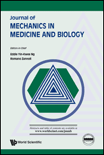
Journal of Mechanics in Medicine and Biology
Scope & Guideline
Transforming Medical Technologies through Mechanical Research
Introduction
Aims and Scopes
- Biomechanics and Rehabilitation Engineering:
Research in this area includes the design and evaluation of rehabilitation devices, such as exoskeletons and robotic systems, aimed at improving patient recovery and mobility. - Medical Imaging and Image Processing:
This encompasses advanced methodologies for medical image analysis, including segmentation and classification techniques using deep learning and other computational methods. - Computational Modeling and Simulation:
The journal features studies that utilize computational fluid dynamics (CFD) and finite element analysis (FEA) to model physiological systems, assess medical devices, and predict treatment outcomes. - Health Monitoring and Wearable Technologies:
Research focusing on the development of wearable devices that monitor physiological signals, aiming to enhance patient care and provide real-time health assessments. - Artificial Intelligence in Healthcare:
This includes the application of machine learning and AI techniques to improve diagnosis, treatment planning, and patient management through data-driven approaches. - Clinical Applications of Biomechanics:
Studies that investigate the biomechanical factors affecting clinical outcomes in various medical conditions, such as musculoskeletal disorders and surgical interventions.
Trending and Emerging
- Deep Learning and AI Applications:
There is a marked increase in research utilizing deep learning algorithms for tasks such as image segmentation, diagnosis, and predictive modeling, showcasing the growing reliance on artificial intelligence in medical applications. - Robotics and Autonomous Systems in Healthcare:
Emerging studies focus on the development of robotic systems for rehabilitation and surgery, indicating a trend towards automation and enhanced precision in medical interventions. - Multimodal Health Monitoring Systems:
Research on integrated systems that combine various physiological monitoring techniques using IoT and wearable devices is gaining traction, reflecting a shift towards comprehensive patient health management. - Personalized Medicine and Customized Treatment Solutions:
The journal is increasingly publishing studies on personalized approaches to treatment, including custom implants and individualized rehabilitation protocols, driven by advancements in biomaterials and patient-specific modeling. - Simulation-Based Medical Training and Planning:
Emerging themes include the use of simulation and virtual reality for training healthcare professionals and planning surgical interventions, indicating a trend towards enhanced educational tools in the medical field.
Declining or Waning
- Traditional Medical Practices:
Research related to traditional methods such as acupuncture and herbal medicine appears to be declining, possibly due to a growing emphasis on evidence-based practices and technology-driven approaches. - Simple Mechanical Devices:
The focus on basic mechanical devices or traditional rehabilitation tools is waning, as the trend shifts towards more sophisticated, technology-enhanced solutions like robotic systems. - Basic Physiology Studies:
There is a noticeable decrease in the publication of basic physiological studies that do not incorporate advanced modeling or technology, indicating a preference for interdisciplinary applications that combine engineering and biological sciences.
Similar Journals
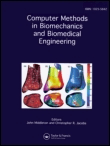
COMPUTER METHODS IN BIOMECHANICS AND BIOMEDICAL ENGINEERING
Innovating Computational Techniques for Medical BreakthroughsCOMPUTER METHODS IN BIOMECHANICS AND BIOMEDICAL ENGINEERING, published by TAYLOR & FRANCIS LTD, is a leading journal dedicated to the interdisciplinary field of biomechanics and biomedical engineering. With an ISSN of 1025-5842 and an E-ISSN of 1476-8259, this journal has been a significant resource since its inception in 1997 and will continue to publish cutting-edge research until 2024. The journal holds a respectable position in the academic community, categorized in Q3 of multiple domains including Bioengineering, Biomedical Engineering, and Human-Computer Interaction, reflecting its relevance across diverse fields. Although the journal does not offer open access, it provides valuable insights and methodologies essential for researchers, professionals, and students engaged in advancing computational techniques and their application in medicine and engineering. With Scopus rankings highlighting its growing influence, particularly in the Biomedical Engineering and Human-Computer Interaction sectors, this journal plays a crucial role in fostering innovation and enhancing the understanding of biomechanical systems through computational methods.

JOURNAL OF BIOMECHANICS
Unlocking the Mechanics of MovementJOURNAL OF BIOMECHANICS is a premier journal published by Elsevier Science Ltd, renowned for its impactful contributions to the field of biomechanical research since its inception in 1968. With an ISSN of 0021-9290 and an E-ISSN of 1873-2380, this journal serves as a vital resource for researchers, practitioners, and students invested in the interdisciplinary domains of Biomedical Engineering, Biophysics, Orthopedics, Sports Medicine, and Rehabilitation. The journal consistently ranks in the Q1 and Q2 quartiles across several categories, reflecting its dedication to high-quality and innovative research, as evidenced by its impressive Scopus rankings—particularly within Medicine Rehabilitation (Rank #23/161). Despite being a subscription-based journal, it offers crucial insights into mechanical analysis and applications that enhance our understanding of human movement and performance. With projections of coverage extending to 2024, the JOURNAL OF BIOMECHANICS remains an indispensable platform for disseminating cutting-edge research that drives advancements in health, performance, and injury rehabilitation.

Acta of Bioengineering and Biomechanics
Pioneering research that shapes the future of biomedical engineering.Acta of Bioengineering and Biomechanics is a distinguished academic journal published by Wroclaw University of Technology, Faculty of Computer Science & Management, focusing on the interdisciplinary fields of bioengineering and biomechanics. Since its inception in 2005, the journal has provided a platform for innovative research and critical reviews that contribute to the advancement of knowledge in areas such as biomaterials, biomedical engineering, and biophysics. Despite its current Q4 ranking in several categories, including Bioengineering and Biomaterials, it serves as a valuable resource for emerging scholars and seasoned professionals alike, highlighting the evolving landscape of research in these dynamic fields. The journal brings together a diverse range of studies, fostering collaboration and creativity among its readership. With its commitment to disseminating high-quality research, Acta of Bioengineering and Biomechanics plays an essential role in nurturing academic inquiry and professional growth within the scientific community in Poland and beyond.
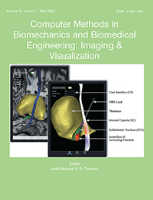
Computer Methods in Biomechanics and Biomedical Engineering-Imaging and Visualization
Transforming Healthcare Through Cutting-Edge Visualization MethodsComputer Methods in Biomechanics and Biomedical Engineering - Imaging and Visualization is a prominent academic journal published by Taylor & Francis Ltd, dedicated to the intersection of computational methods and biomedical engineering. With an ISSN of 2168-1163 and an E-ISSN of 2168-1171, the journal has become a crucial resource for researchers and professionals exploring innovative imaging and visualization techniques in healthcare. Covering a broad spectrum of topics, it aims to facilitate the advancement of knowledge in areas such as biomechanics, computational mechanics, and medical imaging. Holding a strong position in various Scopus rankings, including Q2 in Computational Mechanics, it offers valuable insights that foster interdisciplinary collaboration. Although it is not an open-access journal, researchers can access its rich repository of knowledge, which is instrumental in shaping future advancements in biomedical applications. The journal’s commitment to quality and relevance ensures that it remains an authoritative source for emerging trends and methodologies within the field, serving as a vital tool for academia and industry practitioners alike.

Journal of Medical Signals & Sensors
Elevating Medical Research with Rigorous Peer ReviewJournal of Medical Signals & Sensors, published by Wolters Kluwer Medknow Publications, is a pioneering platform in the fields of Biomedical Engineering, Computer Science, and Health Informatics, focusing on innovative research and advancements in medical technology. With an Open Access policy since 2012, the journal promotes widespread dissemination of knowledge, aiming to facilitate the sharing of vital insights and developments among researchers, healthcare professionals, and students globally. The journal has achieved commendable rankings in its various categories, including Q3 in Biomedical Engineering and Radiology, underscoring its importance in advancing health technology and informatics. Its commitment to rigorous peer review ensures that published works are of the highest quality, making it a valuable resource for those engaged in cutting-edge medical research. With annual publications planned through 2024, the Journal of Medical Signals & Sensors continues to expand its influence and relevance in a rapidly evolving scientific landscape.
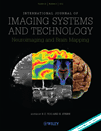
INTERNATIONAL JOURNAL OF IMAGING SYSTEMS AND TECHNOLOGY
Exploring the Frontiers of Imaging ScienceINTERNATIONAL JOURNAL OF IMAGING SYSTEMS AND TECHNOLOGY, published by Wiley, is a leading journal dedicated to advancing the field of imaging systems and technologies. With an ISSN of 0899-9457 and E-ISSN 1098-1098, this esteemed journal offers a platform for high-quality research spanning essential interdisciplinary areas, including Biomedical Engineering, Computer Science, and Health Informatics. Recognized for its impactful contributions, it holds a commendable position in the Q2 quartile across multiple categories as of 2023. The journal boasts an excellent Scopus ranking, with notable acknowledgments like rank #49 out of 333 in Radiology, Nuclear Medicine, and Imaging, showcasing its relevance and importance in the academic community. Publishes annually from 1989 to 2024, it aims to bridge gaps in knowledge and foster innovative developments through rigorous peer-reviewed articles. Though it operates under a traditional access model, the journal maintains an accessible repository of cutting-edge research, making it indispensable for researchers, professionals, and students alike seeking to stay at the forefront of imaging technology advancements.
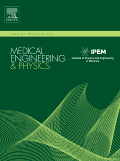
MEDICAL ENGINEERING & PHYSICS
Elevating Research in Biomedical Engineering and BiophysicsMEDICAL ENGINEERING & PHYSICS, published by Elsevier Science Ltd, is an esteemed journal in the fields of Biomedical Engineering and Biophysics. With an ISSN of 1350-4533 and an E-ISSN of 1873-4030, it has established itself as a significant resource from its inception in 1994, continuing to deliver pivotal research up to 2024. This journal, categorized in the Q3 quartile for both Biomedical Engineering and Biophysics, holds a respectable position in Scopus rankings, boasting its relevance in the upper echelons of academic inquiry, particularly ranking #75/152 in Biophysics and #158/303 in Biomedical Engineering. Authors and researchers in these dynamic fields will find the journal’s rigorous peer-review process and commitment to publishing high-quality original research invaluable for advancing their work. Although the journal is not open access, it continues to attract submissions that push the boundaries of innovation and application in medical technologies, making it an essential resource for anyone dedicated to the integration of engineering principles with medical sciences.
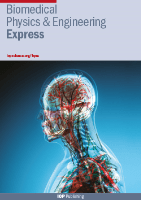
Biomedical Physics & Engineering Express
Pioneering Innovations in Healthcare TechnologyBiomedical Physics & Engineering Express, published by IOP Publishing Ltd, serves as a dynamic platform for the dissemination of groundbreaking research in the interdisciplinary domains of biomedical physics, engineering, and related fields. With a focus on innovative solutions for healthcare challenges, the journal extends its reach to a global audience, providing valuable insights that influence both academic research and practical applications. Operating under an open-access format, this journal ensures that vital scientific discoveries are readily available to researchers, professionals, and students alike. Ranking within the Q3 and Q4 quartiles across various categories—including Bioengineering and Biomedical Engineering—indicates its emerging influence in the scientific community since its inception in 2015. With an increasing footprint in Scopus rankings and a commitment to advancing knowledge in subfields such as biophysics and health informatics, Biomedical Physics & Engineering Express plays a crucial role in shaping future innovations in healthcare technology and patient care.
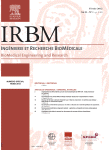
IRBM
Catalyzing Transformative Ideas in Life Sciences ResearchIRBM, published by Elsevier Science Inc, stands at the forefront of research in the domains of Biomedical Engineering and Biophysics, boasting impressively high rankings with a Q1 category in both fields according to the 2023 evaluations. With an effective focus on cutting-edge innovations and methodologies, IRBM provides a vital platform for researchers, professionals, and students alike seeking to disseminate and access groundbreaking findings and developments. Its strong presence in the Scopus database, with ranks of #12 in Biochemistry, Genetics and Molecular Biology and #42 in Biomedical Engineering, places it in the top percentile of impactful journals in the field, making it a crucial resource for advancing knowledge and fostering collaboration. While the journal maintains a traditional subscription model, it continues to attract a diverse readership eager for insightful studies and reviews that push the boundaries of science and engineering. With a projected convergence of years extending to 2024, IRBM promises to remain a significant contributor to the ongoing dialogue in the life sciences.

Biomaterials and Biomechanics in Bioengineering
Shaping the Future of Biomaterials and Biomechanics.Biomaterials and Biomechanics in Bioengineering is a premier peer-reviewed journal dedicated to the exploration of innovative advancements in the field of bioengineering. Published by TECHNO-PRESS, the journal aims to bridge the gap between biomaterials science and biomechanics, providing a platform for researchers, practitioners, and students to disseminate their findings. With a focus on the latest developments in material design, mechanical behavior, and their applications in medical devices and tissue engineering, Biomaterials and Biomechanics in Bioengineering plays a crucial role in fostering interdisciplinary collaboration and innovation. This journal not only encourages open access to cutting-edge research but also seeks to influence the global bioengineering community through its rigorous publication standards and emphasis on practical applications. Stay at the forefront of bioengineering research and contribute to the discourse shaping the future of healthcare technologies.